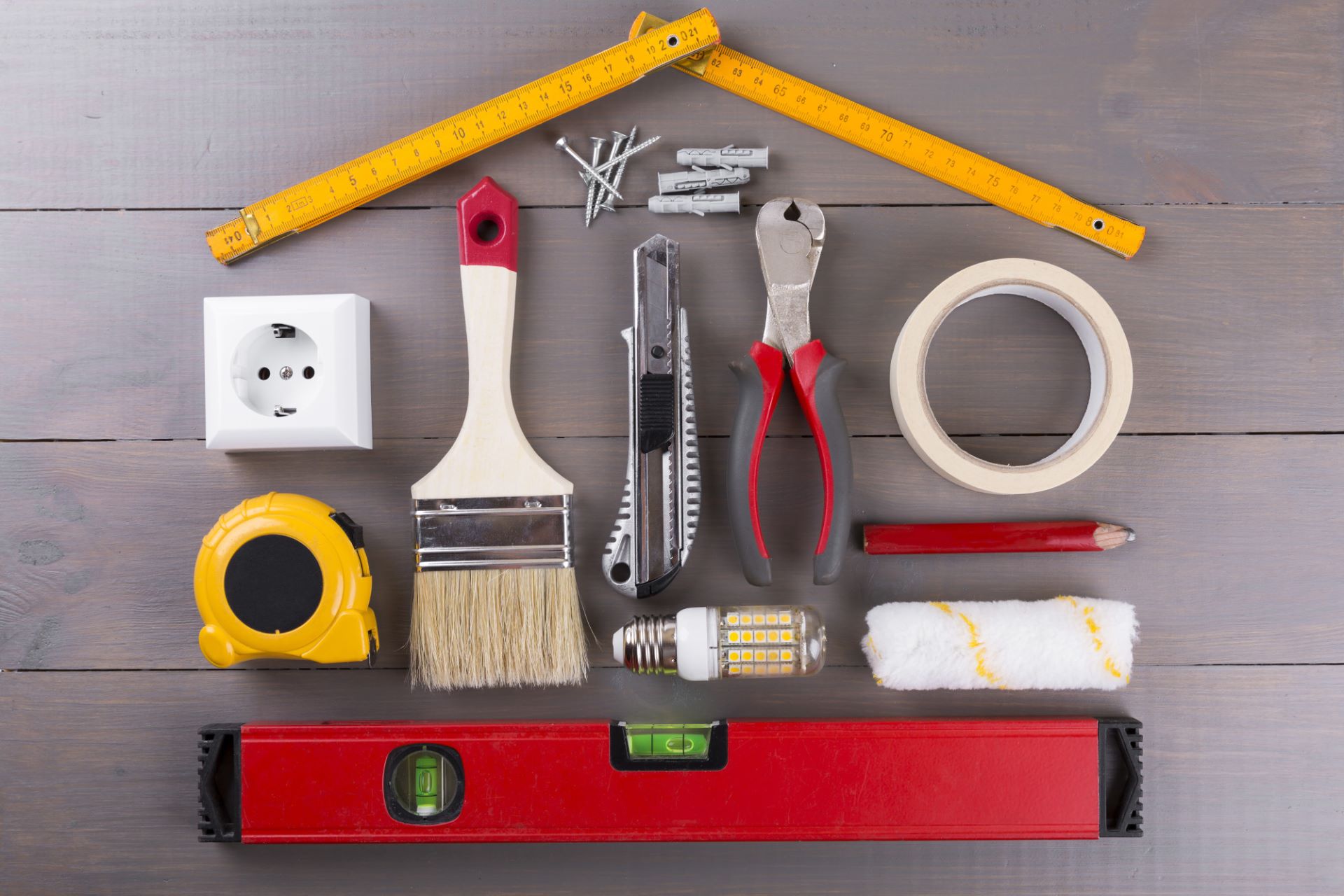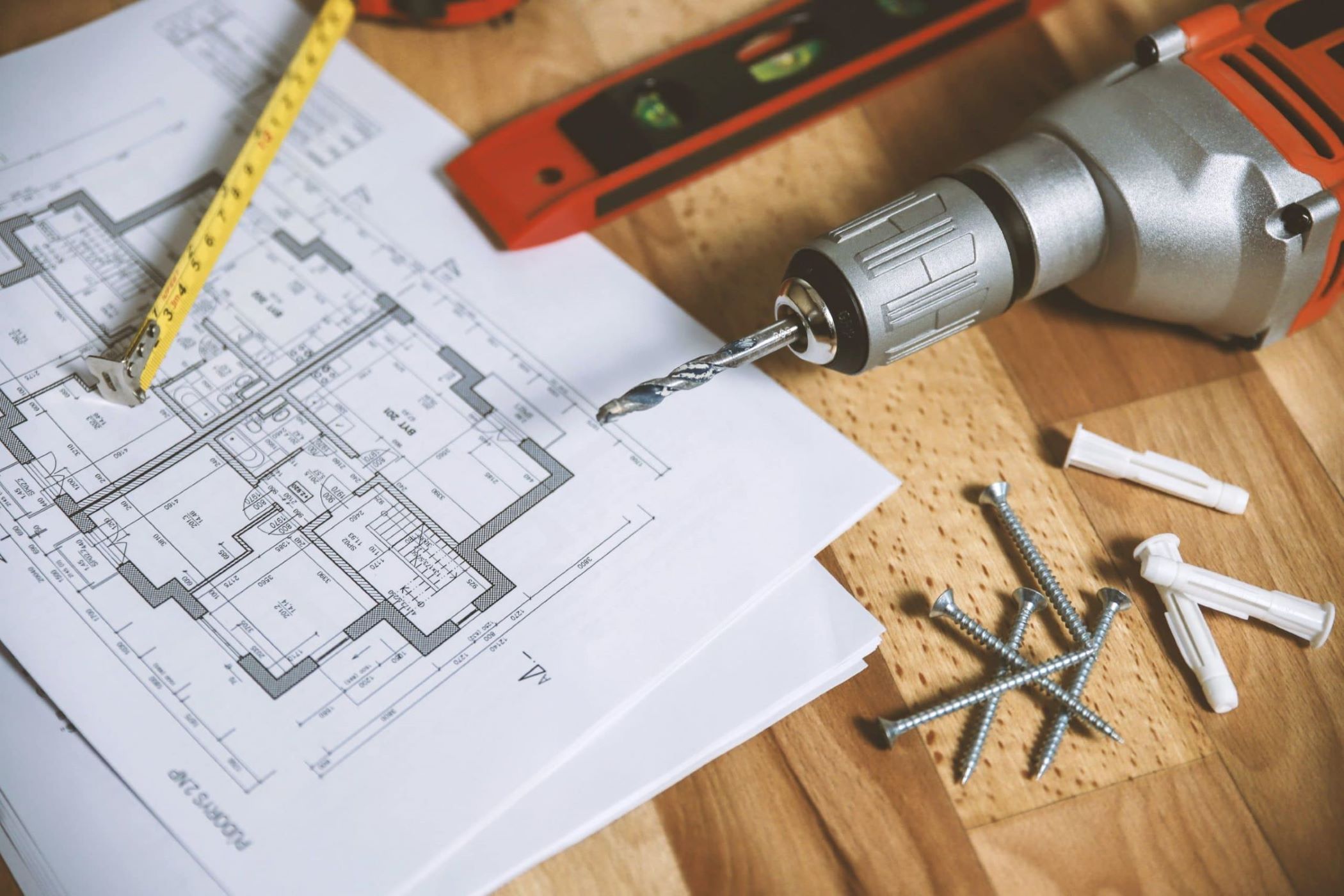Home>Guides>How-To Guides>How To Secure Financing For Home Projects


How-To Guides
How To Secure Financing For Home Projects
Published: December 21, 2023
Learn how to secure financing for your home improvement projects with our comprehensive how-to guides. Find the best funding options and get started today!
(Many of the links in this article redirect to a specific reviewed product. Your purchase of these products through affiliate links helps to generate commission for Storables.com, at no extra cost. Learn more)
Introduction
Embarking on a home improvement project is an exciting endeavor that can enhance the functionality, aesthetics, and value of your living space. Whether you’re considering a kitchen renovation, bathroom upgrade, or a complete home remodel, securing the necessary financing is a crucial step in turning your vision into reality. This comprehensive guide will walk you through the process of assessing your financing needs, exploring various financing options, applying for financing, and ultimately securing the funds required for your home project.
Understanding the intricacies of securing financing for home projects is essential for homeowners looking to undertake renovations or upgrades. By familiarizing yourself with the available options and the application process, you can make informed decisions that align with your financial goals and project requirements. Let’s delve into the steps involved in securing financing for your home project, empowering you to transform your living space while effectively managing your financial resources.
Key Takeaways:
- Assess your project’s costs and your financial situation before exploring financing options. Be prepared for unexpected expenses by building a buffer into your financing plan.
- Carefully review and understand the terms of your financing agreement. Allocate funds wisely, communicate openly, and adhere to the repayment schedule for a successful home project.
Read more: How To Finance Home Improvement
Assessing Your Financing Needs
Before delving into the realm of financing options, it’s crucial to assess the specific financial requirements of your home project. Start by outlining the scope of the project and determining the associated costs. Consider factors such as materials, labor, permits, and any additional expenses that may arise during the course of the project. By conducting a thorough assessment, you can gain a clear understanding of the financial resources needed to bring your vision to fruition.
Next, evaluate your current financial standing. Take stock of your savings, investments, and any existing lines of credit. Assessing your financial health enables you to gauge how much you can contribute from your own funds and how much external financing you may require. Additionally, consider your income and monthly budget to determine a comfortable repayment plan for the financing you seek.
It’s also important to anticipate any potential roadblocks or unforeseen expenses that may arise during the project. Building a buffer into your financing plan can provide a safety net in case of unexpected costs, ensuring that your project can proceed smoothly without financial strain.
By thoroughly assessing your financing needs, you can approach the next steps with a clear understanding of the funding required for your home project. This knowledge will empower you to make informed decisions when exploring the various financing options available.
Exploring Different Financing Options
When it comes to financing a home project, there are several options available to homeowners. Exploring these options can help you find the most suitable financing solution that aligns with your financial circumstances and the scope of your project. Here are some common financing avenues to consider:
- Home Equity Loan or Home Equity Line of Credit (HELOC): If you have built up equity in your home, you may be eligible for a home equity loan or a HELOC. These options allow you to borrow against the value of your home, providing access to a lump sum (home equity loan) or a revolving line of credit (HELOC) that can be used for your home project.
- Personal Loan: Personal loans are unsecured loans that can be used for various purposes, including home improvements. They typically have fixed interest rates and terms, providing a predictable repayment structure.
- Refinancing: If you have a mortgage, refinancing your home loan can be a viable option for accessing funds for your project. Cash-out refinancing allows you to replace your existing mortgage with a new one that has a higher principal, enabling you to receive the difference in cash.
- Contractor Financing: Some contractors offer financing options to homeowners for their projects. These arrangements may come with competitive terms and convenient application processes, making them a convenient choice for financing specific projects.
- Government Programs: Certain government programs, such as FHA Title I Property Improvement Loans or energy-efficient home improvement loans, provide financing specifically tailored to home improvement projects. These programs may offer favorable terms and requirements.
Each financing option comes with its own set of advantages, considerations, and eligibility requirements. It’s important to thoroughly research and compare these options to determine which aligns best with your financial situation and project needs. Additionally, consider factors such as interest rates, repayment terms, and potential impact on your home equity when evaluating these financing avenues.
By exploring the diverse range of financing options, you can make an informed decision that supports your vision for your home project while ensuring a sound financial strategy.
Shop around for the best financing options for your home project. Compare interest rates, terms, and fees from different lenders to find the most affordable option.
Applying for Financing
Once you’ve assessed your financing needs and explored the available options, the next step is to navigate the application process for securing the necessary funds for your home project. Applying for financing requires careful consideration and thorough preparation to enhance your chances of approval and secure favorable terms. Here’s a guide to help you navigate the application process:
- Gather Required Documentation: Different financing options may require specific documentation, such as proof of income, tax returns, property appraisals, and project estimates. Gather these documents in advance to streamline the application process.
- Review Your Credit Profile: Your credit history and score play a crucial role in the financing approval process. Obtain a copy of your credit report and review it for accuracy. Address any discrepancies or issues that could potentially impact your application.
- Compare Lenders and Offers: If you’re considering multiple financing sources, compare the terms, interest rates, and fees offered by different lenders. This can help you identify the most competitive and favorable financing option for your project.
- Complete the Application: Whether you’re applying for a home equity loan, personal loan, or contractor financing, carefully complete the application forms, providing accurate and detailed information. Pay attention to any additional documentation or disclosures required.
- Be Prepared for Appraisal or Evaluation: Depending on the financing option, your property may need to undergo an appraisal or evaluation to determine its current value and assess its suitability as collateral.
- Understand the Terms and Conditions: Before finalizing the application, thoroughly review the terms and conditions of the financing offer. Pay attention to the interest rate, repayment schedule, any associated fees, and the impact on your home equity or credit.
- Submit the Application and Await Approval: Once you’ve completed the application and provided all required documentation, submit the application to the lender or financing provider. Allow time for the application to be processed and evaluated.
By following these steps and being diligent in your preparation, you can navigate the application process with confidence, increasing the likelihood of securing the financing needed for your home project. Keep in mind that prompt and accurate communication with the lender can expedite the process and address any potential concerns or inquiries.
Securing Financing for Your Home Project
Securing the necessary financing for your home project is a significant milestone that paves the way for turning your renovation or improvement plans into reality. Once your application has been approved and you’ve chosen the most suitable financing option, it’s essential to take proactive steps to ensure a smooth and successful funding process. Here’s a comprehensive guide to help you secure the financing needed for your home project:
- Review and Sign the Loan Agreement: Carefully review the terms and conditions outlined in the loan agreement or financing contract. Ensure that you understand the repayment schedule, interest rates, any associated fees, and the consequences of defaulting on the loan.
- Disbursement of Funds: Depending on the financing option, the funds may be disbursed in a lump sum or in installments. Coordinate with the lender or financing provider to facilitate the timely disbursement of funds according to your project’s timeline and financial requirements.
- Allocate Funds Wisely: Once the funds are available, allocate them judiciously towards your home project. Exercise financial prudence by utilizing the funds for project-related expenses, such as materials, labor, permits, and any other essential costs.
- Maintain Open Communication: Stay in regular communication with the lender or financing provider throughout the project. Promptly address any changes in the project scope, budget adjustments, or unforeseen challenges that may impact the financing arrangement.
- Adhere to the Repayment Schedule: Honor the agreed-upon repayment schedule and make timely payments as per the terms of the financing agreement. Adhering to the repayment schedule not only fulfills your financial obligations but also contributes to maintaining a positive credit history.
- Monitor Project Progress and Expenses: Keep a close eye on the progress of your home project and monitor expenses to ensure that the allocated funds are being utilized effectively. Maintaining financial oversight can help prevent budget overruns and ensure the successful completion of the project within the allocated financing.
- Completion and Final Inspections: Upon completing the home project, ensure that all necessary inspections and approvals are obtained. This signifies the successful realization of your vision and the culmination of the financed improvements to your home.
- Appreciate the Transformation: As you enjoy the enhanced comfort, functionality, and aesthetics of your improved living space, take pride in the successful completion of your home project, made possible through strategic financing and diligent project management.
By following these guidelines and maintaining a proactive approach, you can secure financing for your home project with confidence and ensure that the funds are utilized effectively to bring your vision to life. Effective financial management and adherence to the terms of the financing agreement can contribute to a successful and rewarding home improvement experience.
Frequently Asked Questions about How To Secure Financing For Home Projects
Was this page helpful?
At Storables.com, we guarantee accurate and reliable information. Our content, validated by Expert Board Contributors, is crafted following stringent Editorial Policies. We're committed to providing you with well-researched, expert-backed insights for all your informational needs.
















0 thoughts on “How To Secure Financing For Home Projects”